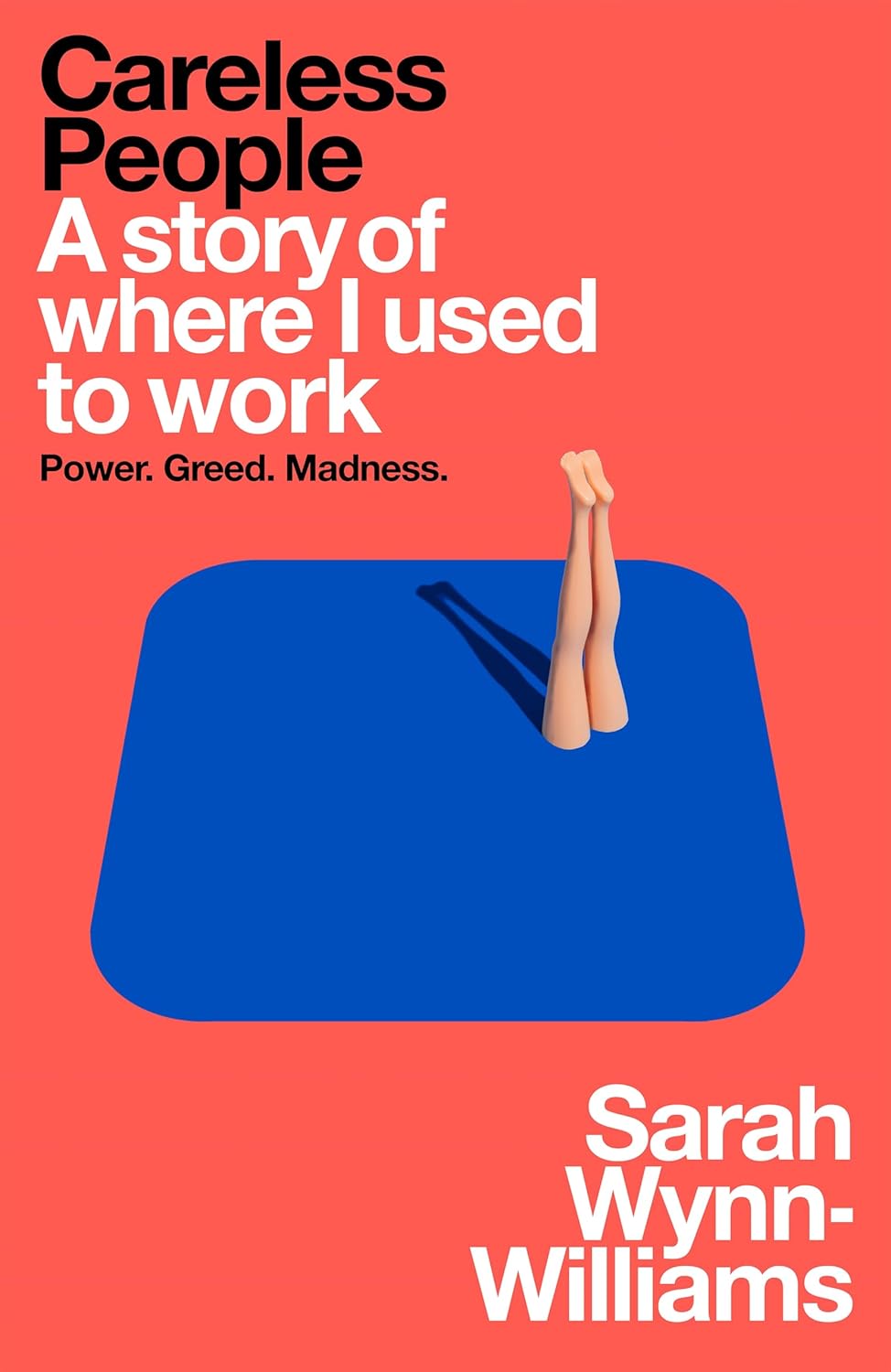sol2070 reviewed Careless People by Sarah Wynn-Williams
Inside Facebook
5 stars
( em português → sol2070.in/2025/06/livro-careless-people/ )
In Careless People (2025, 400 pages), Sarah Wynn-Williams recounts the years between 2011 and 2018 when she worked closely with Mark Zuckerberg and other Facebook leaders. The book is captivating and fascinating because it gets up close and personal with the kind of people who influence the world so much, showing glimpses of how extremely different they are from most people, in terms of their lack of humanity, as well as some of the company's most shady operations, which we only hear about when their spokespeople appear to deny everything.
The book's success could be one of the comedies of errors recounted in the book itself. The corporation tried to legally ban the circulation of the work. The result: it went straight to the bestseller list on the day of its release.
The narrative begins slowly, with Sarah joining the company. But the revelations become more serious as she gets closer to the leaders. For example, Zuckerberg's obsession with cornering the Chinese market, and all kinds of privacy invasions and espionage he offered the Chinese Communist Party to close a deal.
Coming from New Zealand, with experience in diplomacy, she worked with FB policies in countries outside the US. It is only towards the end that she decides to leave, disgusted by what she repeatedly witnessed and by personal abuse. For most of the book, she tries to convince herself that the corporation could still have a positive effect on the world, admitting her own careerism. In other words, she is no Edward Snowden-type whistleblower; she just wanted the company to make humane decisions, sacrificing profits minimally, but still generating billions for shareholders and a good salary for herself.
Perhaps that is why the title of the book is so neutral: “Careless People”. The author saw no evil conspiracy, only executives who were extremely irresponsible and negligent with anything that did not quickly translate into profits for shareholders. But the consequences of this, as in other companies of this size, are disastrous for people and the world.
Genocide in Myanmar
One example, in the most shocking chapter, is what happened in Myanmar between 2015 and 2017. It was one of the few countries that joined the company's project to help provide internet to the population, as long as the internet was limited to Facebook (brazilian president Dilma Rousseff appears in the book giving Zuckerberg the cold shoulder when he tries to sell the scheme to Brazil). A large part of the population started using FB, which came pre-installed on cell phones, with unlimited minutes, without ever having used the internet on a desktop computer.
The country has a Buddhist majority and an Islamic minority, and has been ruled by a dictatorship since a coup in 1962 (with failed attempts at democratization in recent years). Stimulated by fake news and hatred on Facebook, radical groups began to lynch and rape Muslims, aided or allowed by police and military personnel. The massacre escalated into genocide (recognized by the UN), with more than 6,000 dead and the forced displacement of 700,000 Muslims to Bangladesh.
From the first signs of the catastrophe, the company's leadership had been warned and pressured, but did nothing because the country was not on the priority list — what mattered there were only the millions of new users to fatten the global sum that gives value to the corporation. There was only one person employed to moderate fake news (based in Ireland), and she was sympathetic to the military and opposed to human rights. The official FB app did not work, and people ended up using third-party programs, which did not have the ability to report crimes online. There was even an implementation error in the encoding of Burmese characters, which prevented people outside the country from viewing the content correctly — for example, for someone who understood the language to evaluate it in the US (at the time, automatic translators did not translate Burmese).
The team trying to monitor the situation had to do so unofficially, contacting NGOs, since the company did nothing. Facebook only took action too late, after the ethnic-religious massacre had reached massive proportions, adding to the official list of crimes against humanity.
Hacking human vulnerabilities
Another striking example of this negligence on the part of administrators was when a report in Australia revealed that ad sellers were widely exploiting one of Facebook's capabilities: commercially exploiting moments when teenagers felt “emotionally vulnerable.”
Research has already proven that, at times like these, people spend money more compulsively. The platform detected, for example, when a teenager deleted a selfie (a sign of dissatisfaction with her appearance) and then displayed an advertisement for a cosmetic or weight loss product.
The company was quick to deny and condemn any such practice. Then, people in the sales department began to protest internally, saying that publicly condemning this practice, as if it were something nefarious, was hurting sales. Everyone, in every office of the company around the world, used it. In fact, it was what made the difference in commissions. Salespeople wanted the company to own up to what it was doing so that sales would not be affected.
Abuse
Sarah also reports several instances of abuse she suffered, such as having to participate in online meetings during maternity leave, or constant sexual insinuations from bosses. She details how silence about abuse is part of the toxic culture of the workplace. When she reported her boss's harassment, she ended up being fired.
Reacting publicly to the accusations in the book, executives referred to the author as a troubled and resentful former employee. Denying, as always, any possible illegality or wrongdoing.

